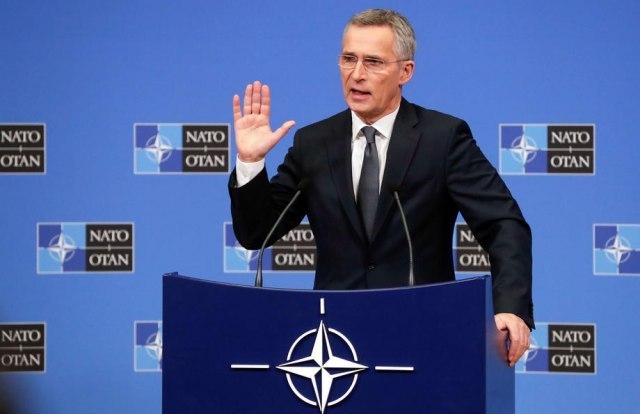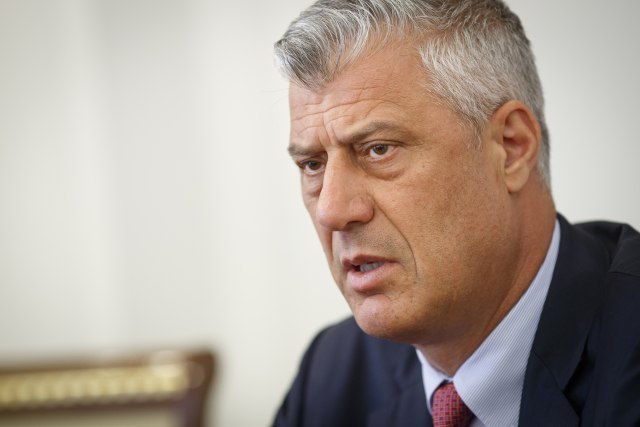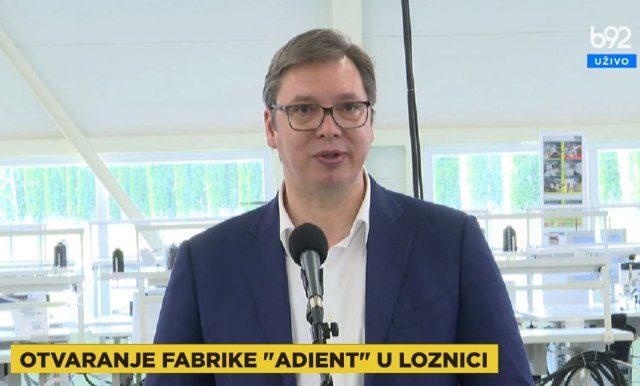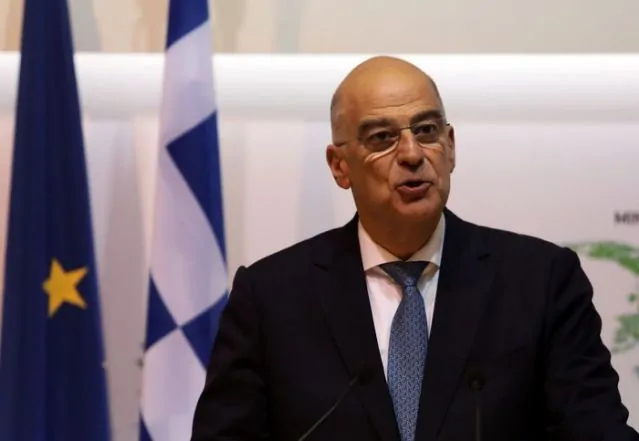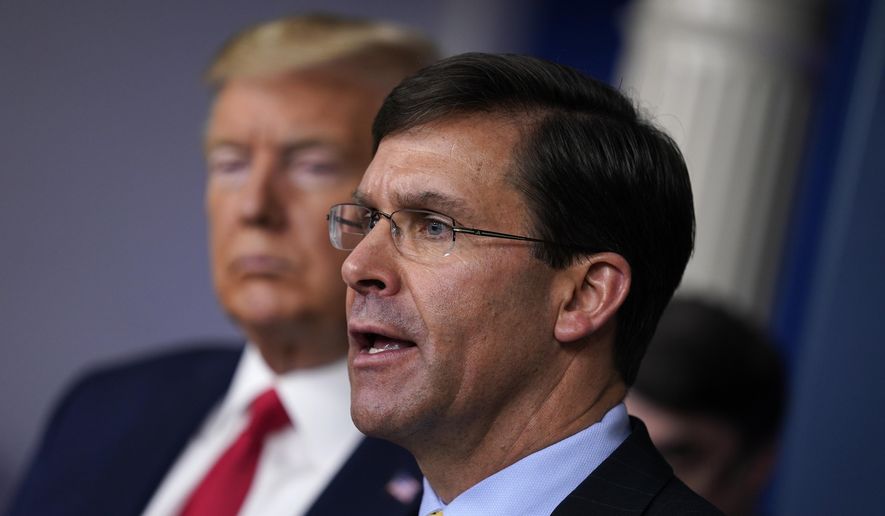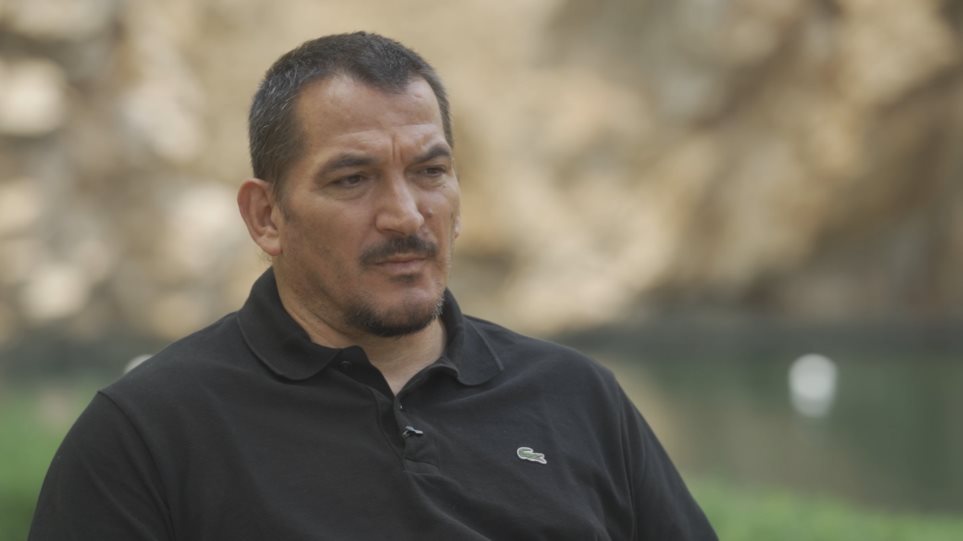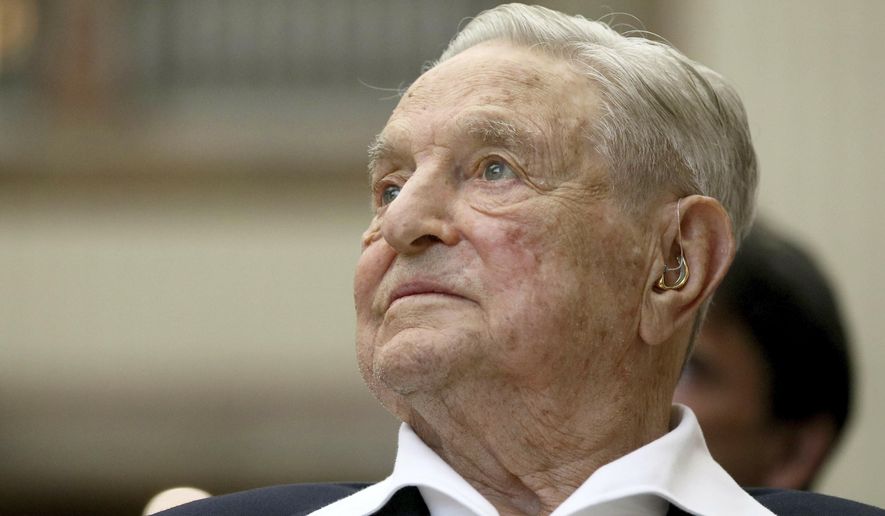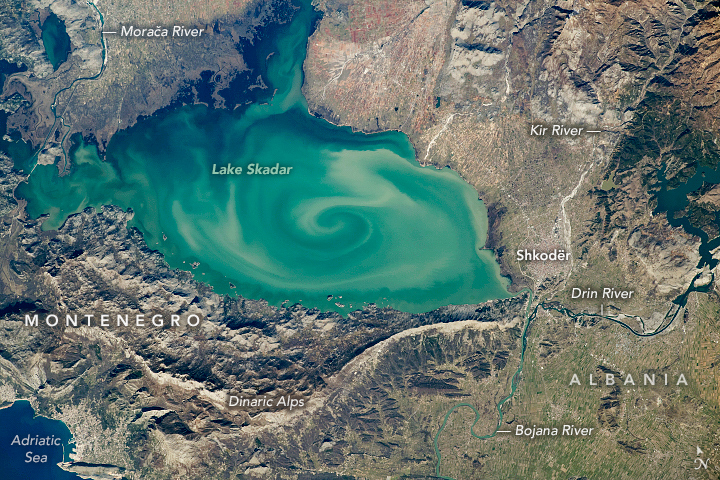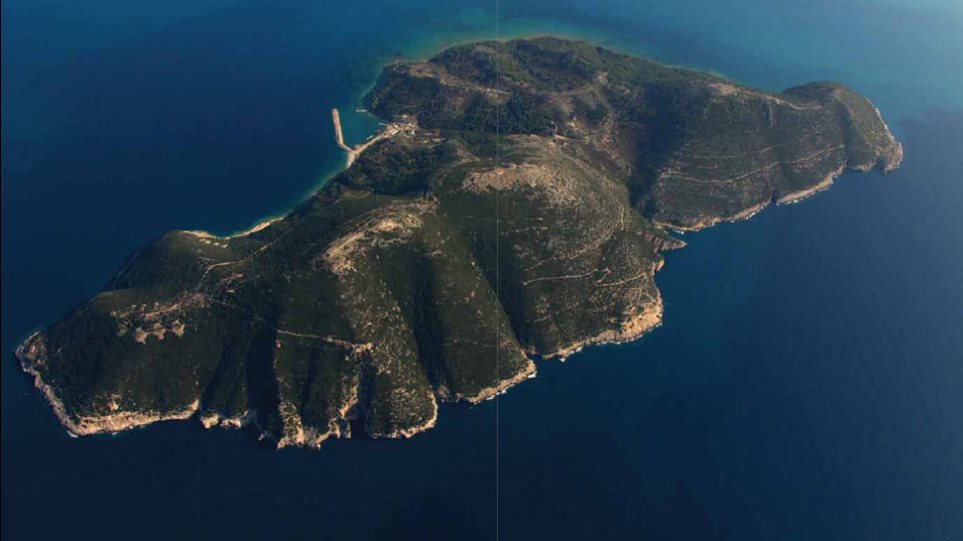
22/04/2017, Proto Thema
Η Σάσων από την αρχαιότητα ως το 1864 – Πώς και γιατί ανήκει στα Επτάνησα – Η ακατανόητη 50χρονη ελληνική ολιγωρία για πλήρη άσκηση κυριαρχίας στο νησί – Η εθνικά επιζήμια, ακατανόητη και ολέθρια παραχώρησή της στην Αλβανία το 1914
Μια ακόμα άγνωστη και σκοτεινή ιστορία της ελληνικής εξωτερικής πολιτικής θα εξετάσουμε και θα προσπαθήσουμε να φωτίσουμε, όσο περισσότερο γίνεται, σήμερα.
Πρόκειται για την παραχώρηση με νόμο (με δύο μόλις άρθρα), από την ελληνική Βουλή, της νήσου Σάσωνος, που ανήκε στην Ελλάδα από το 1864 (με βάση το 2ο άρθρο της Συνθήκης του Λονδίνου της 17/29 Μαρτίου 1864), στην Αλβανία, μετά από απαίτηση της Ιταλίας και της Αυστρίας.
Η ΝΗΣΟΣ ΣΑΣΩΝ – ΓΕΩΓΡΑΦΙΚΑ ΚΑΙ ΙΣΤΟΡΙΚΑ ΣΤΟΙΧΕΙΑ
Η Σάσων είναι νησί που ανήκει, σήμερα, στην Αλβανία. Η αλβανική της ονομασία είναι Sazan ή Sazani και η ιταλική της Saseno. Έχει έκταση περίπου 6 τ.χλμ. και μεγάλη στρατηγική σημασία, καθώς βρίσκεται ανάμεσα στα στενά του Οτράντο και την είσοδο του Κόλπου της Αυλώνας. Δεν έχει μόνιμους κατοίκους, τουλάχιστον επίσημα.
Η Σάσων ή Σασώ είναι γνωστή ήδη από την αρχαιότητα. Ο Πολύβιος την αναφέρει σε ένα «επεισόδιο» του πολέμου ανάμεσα στον Φίλιππο Ε’ της Μακεδονίας και τους Ρωμαίους (215 π.Χ.). Ο Σκύλαξ ο Καρυανδεύς γράφει :«Κατά ταύτα έστι τα Κεραύνια Όρη εν τη Ηπείρω και νήσος παρά ταύτα έστι μικρά, η όνομα Σάσων». Ο Στράβωνας την αναφέρει πρώτος και ως Σασώ, ενώ ο Κλαύδιος Πτολεμαίος γράφει : «Νήσοι δε παράκεινται τη Μακεδονία, εν μεν τω Ιονίω πελάγει Σασώ νήσος (ή Σάσων)». Ο Πλίνιος τη χαρακτηρίζει ορμητήριο πειρατών. Την αναφέρουν ακόμα ο Πομπώνιος Μέλας και ο Σίλιος ο Ιταλικός, ενώ μνεία της γίνεται και στο Itinerarium Antonini Augusti, που συντάχθηκε αρχικά στα χρόνια του Καρακάλλα, αλλά το γνωρίζουμε από μεταγενέστερη έκδοσή του, με προσθήκες (4ος αι.)
Στα βυζαντινά χρόνια, ο Νικήτας Χωνιάτης αναφέρεται στο Απειρονήσιον, το οποίο ο Πουκεβίλ ταυτίζει με τη Σάσωνα. Σαφής αναφορά από βυζαντινούς συγγραφείς γίνεται μόνο από τον Ιωάννη Ευγενικό το 1439 : «κατ’ αυτόν τον Ανδρίαν κόλπον εγγύς μικρόν κατωτέρω της νήσου Σαζαίνης νυν καλουμένης...».
Το 1297, η Σάσων καταλήφθηκε από τους Ανδηγανούς της Νεάπολης. Το 1303 μνημονεύεται στα βενετικά αρχεία. Σε έγγραφο της Ραγούζας (σημ. Ντουμπρόβνικ) του 1324, γίνεται λόγος για αποστολή 2 πλοίων στα παράλια της Αλβανίας προκειμένου να καταδιώξουν ένα πειρατικό πλοιάριο κι εκεί γίνεται μνεία της Σάσωνος. Το 1344 η Σάσων αναφέρεται ξανά σε βενετικά έγγραφα, ενώ το 1372 δίνεται διαταγή στον Βενετό πλοίαρχο της Αδριατικής να πείσει τους «μεταχθέντες» (όπως γράφεται) από την Αυλώνα στη Σάσωνα, να εγκατασταθούν στη Μεθώνη και την Κορώνη, αν όμως δεν δεχθούν κάτι τέτοιο, να τους επιτρέψει να παραμείνουν στη Σάσωνα, απαλλάσσοντάς τους από κάθε φόρο για 4 χρόνια, αρκεί να ορκιστούν πίστη στη Βενετία.
Στα τέλη του 14ου αιώνα, φαίνεται ότι η Σάσων βρισκόταν στην κατοχή του Αλβανού φυλάρχου Μπάλσα Β’ και αργότερα της χήρας του, κόμισσας Μουζάκη, η οποία αναγνώρισε τη Βενετσιάνικη επικυριαρχία στο νησί. Το 1417, οι Τούρκοι καταλαμβάνουν τον κόλπο της Αυλώνας, ενώ το 1571 η Σάσων αποτελεί το ορμητήριο του οθωμανικού στόλου κατά τη ναυμαχία της Ναυπάκτου. Το 1696 έχει περάσει, όμως, πάλι στους Ενετούς, όπως φαίνεται στα έργα του μεγάλου Βενετσιάνου γεωγράφου Coronelli. Φαίνεται, λοιπόν, ότι μεσολάβησε οθωμανική κυριαρχία στη Σάσωνα, χωρίς να γνωρίζουμε ακριβείς ημερομηνίες, η οποία στη συνέχεια συμπεριλήφθηκε στα νησιά της Βενετίας.
ΟΙ ΣΥΝΘΗΚΕΣ ΠΟΥ ΚΑΘΟΡΙΖΟΥΝ ΟΤΙ Η ΣΑΣΩΝ ΑΝΗΚΕΙ ΣΤΑ ΕΠΤΑΝΗΣΑ
Ένα φλέγον ερώτημα είναι αν η Σάσων ανήκει στα Επτάνησα ή όχι. Πολύτιμες πληροφορίες μας δίνει και γι’ αυτό το θέμα ο Κερκυραίος ιστορικός και πολιτικός Σπυρίδων Λάμπρος (1851-1919), πρωθυπουργός το 1916, που πέθανε εξόριστος στη Σκόπελο το 1919. Τα στοιχεία υπάρχουν στο περιοδικό «Νέος Ελληνομνήμων» 11/1914, που έγραφε και εξέδιδε ο Λάμπρος. Αντίγραφο του περιοδικού βρέθηκε στα χέρια μας χάρη στη βοήθεια, για νιοστή φορά, του κυρίου Ιωάννη Παπαφλωράτου, τον οποίον ευχαριστούμε θερμότατα. Το άρθρο αυτό, χωρίς τα στοιχεία από τον «Νέο Ελληνομνήμονα», θα ήταν ελλιπέστατο. Άλλωστε και τα ιστορικά στοιχεία που αναφέραμε παραπάνω, αντλήθηκαν στη συντριπτική τους πλειοψηφία από το περιοδικό αυτό.
Να δούμε, λοιπόν, με βάση ποιες Συνθήκες η Σάσων ανήκει στα Επτάνησα.
i) Συνθήκη του Καμποφόρμιο (1797) (τα Ιόνια νησιά στη Γαλλία)
ii) Συνθήκη της Κωνσταντινούπολης (1800) (Ρώσοι και Τούρκοι διώχνουν τους Γάλλους από τα Ιόνια Νησιά και συγκροτείται η αυτόνομη Επτάνησος Πολιτεία)
iii) Συνθήκη της Αμιένης (1802) (τα Επτάνησα περνούν ξανά στην κατοχή της Γαλλίας)
iv) Συνθήκη του Παρισιού (1815) (τα Ιόνια Νησιά συγκροτούν «ιδίαν Πολιτείαν και ανετέθησαν εις την αγγλικήν προστασίαν»)
v) Έγγραφο της Υψηλής Πύλης (12/4/1819), με το οποίο αναγνωρίζεται η επί των Ιονίων Νήσων προστασία της Αγγλίας και παραχωρείται στην οθωμανική αυτοκρατορία η Πάργα.
Αναλυτικότερα, με το πέμπτο άρθρο της Συνθήκης του Καμποφόρμιο η Γαλλία αποκτά «...απάσας τας κτήσεις τας πρότερον βενετικάς εν Αλβανία τας κειμένας νοτιότερον του κόλπου του Δρίνου».
Στη Συνθήκη της Κων/πολης γίνεται λόγος για όλα τα νησιά, κατοικημένα και μη, που βρίσκονται απέναντι από τα παράλια της Πελοποννήσου και της Αλβανίας.
Σε καμία Συνθήκη δεν αναφέρεται ονομαστικά η Σάσων, όπως και τα υπόλοιπα νησιά του Ιονίου (εκτός από την Κέρκυρα, τη Ζάκυνθο, την Κεφαλλονιά, τη Λευκάδα, τους Παξούς, την Ιθάκη και τα Κύθηρα). Γίνεται λόγος για «εξαρτήματα των νήσων». Πριν 200 και πλέον χρόνια, δεν υπήρχαν ούτε ΑΟΖ, ούτε υφαλοκρηπίδα, ούτε Διεθνές Δίκαιο της Θάλασσας κλπ.
Στο Σύνταγμα των Επτανήσων (1817), το άρθρο 1 αναφέρει : «Το Ηνωμένον Κράτος των Ιονίων Νήσων σύγκειται εκ της Κερκύρας, της Κεφαλληνίας, της Ζακύνθου, της Λευκάδος, της Ιθάκης, των Κυθήρων, των Παξών και εκ των αλλων νησιδίων των παρά τας ακτάς της Αλβανίας και της Πελοποννήσου κειμένων, άτινα πρότερον υπέκειντο εν τη εξουσία των Ενετών».
Κομβικής σημασίας είναι η φράση «νοτιότερον του ποταμού Δρίνου», της Συνθήκης του Καμποφόρμιο, που αναφέραμε και παραπάνω, Αν ΔΕΝ περιλαμβανόταν η Σάσων στα «εξαρτήματα» της Επτανήσου, θα γινόταν μνεία του Κόλπου της Αυλώνας και όχι των «προς νότον εκβολών του Δρίνου».
Στον Νέο Άτλαντα, που είχε συνταχθεί από τον συνταγματάρχη Boryde Saint-Vincent, η Σάσων συμπεριλαμβάνεται στα Ιόνια νησιά (έκδ, 1823, Παρίσι). Έγγραφο της 22ας Ιανουαρίου 1804, που συνέταξε η επιτροπή που είχε οριστεί για τη σύνταξη νομοσχεδίων και το έστειλε στη Γερουσία της Επτανησιακής Πολιτείας, αναγράφονται τα εξής : «Αppartengono e son moralmente e civilmente incorporate all’ Isola di Corfu, le isole piccolo abitate e disabitate di Fano, Merlere, Sazeno, Samothrachio, Sivota, e tutte le alter situate e nell’ interno e desterno del canale fino al Capo Formaggio»
(Ανήκουν και είναι ηθικά και πολιτικά ενσωματωμένα στο νησί της Κέρκυρας τα μικρά νησιά, κατοικημένα και ακατοίκητα, των Οθωνών, της Ερείκουσας, της Σάσωνος, του Μαθρακίου, των Συβότων και όλα τα άλλα που βρίσκονται στο εσωτερικό και το εξωτερικό του καναλιού, μέχρι το ακρωτήριο Formaggio).
(Ευχαριστώ θερμά τον φίλο Άκη Πουτακίδη, για την πολύτιμη βοήθειά του στη μετάφραση του κειμένου).
Γίνεται, λοιπόν, σαφής αναφορά στη Σάσωνα (Sazeno), στους Οθωνούς (Fano), Μαθράκι (Samothrachio), Eρείκουσα (Merlere, μάλλον πρόκειται για τυπογραφικό λάθος, Merlera ονομάζεται η Ερείκουσα στα ιταλικά) και Σύβοτα (νησίδες στον ομώνυμο οικισμό της Θεσπρωτίας σήμερα), ως «εξαρτημάτων» της Κέρκυρας. Αυτός ήταν ο όρος που αναγραφόταν στις Συνθήκες της εποχής.
Το ίδιο κείμενο χρησιμοποιούσαν και οι Άγγλοι για να αποδείξουν ότι η Σάσων ανήκε στα Ιόνια νησιά. Σχετικό είναι το έγγραφο που απέστειλε ο Άγγλος αρμοστής των Επτανήσων Francis Adam, προς τον υπουργό των αποικιών,George Murray (4/12/1829) :
«Το τελευταίον τούτο έγγραφον αποδεικνύει διά σαφεστάτου τρόπου ότι άπασαι αι νήσοι από της Σάσωνος προς βορράν της Κερκύρας μέχρι της Ελαφονήσου προς ανατολάς των Κυθήρων, αποτελούσι μέρος αναπόσπαστον της Ηνωμένης Πολιτείας των Ιονίων Νήσων».
Μάλιστα, όταν οι Τούρκοι το 1859 κατέλαβαν προσωρινά τη Σάσωνα, αποβιβάζοντας στρατιωτικό απόσπασμα, οι Άγγλοι τους εκδίωξαν ανυψώνοντας και πάλι τη σημαία της Ιονίου Πολιτείας.
Τέλος, σε έγγραφο του Άγγλου αρμοστή H. G. Howard προς τον κόμη Grey (1849), Αναφέρεται ότι : «(στα Ιόνια νησιά, εκτός από τα 7 μεγάλα, ανήκουν και) «όλα τα άλλα νησιά, μεγάλα και μικρά, κατοικημένα και ακατοίκητα, κατά μήκος των ακτών του Μοριά και της Αλβανίας, που ανήκαν προηγουμένως στην Βενετία».
1864 : ΤΑ ΕΠΤΑΝΗΣΑ ΣΤΗΝ ΕΛΛΑΔΑ – ΤΑ ΔΙΑΠΟΝΤΙΑ ΝΗΣΙΑ
Στις 21 Μαΐου 1864, ο τελευταίος Άγγλος αρμοστής Έρικ Στορκς, παρέδωσε τα Επτάνησα στον απεσταλμένο της ελληνικής κυβέρνησης, Θρασύβουλο Ζαΐμη. Είχαν προηγηθεί, το ψήφισμα της Ενώσεως των Επτανήσων με την Ελλάδα, που διατύπωσε στη Βουλή της Επτανήσου ο Αριστοτέλης Βαλαωρίτης και διαβάστηκε στην πανηγυρική συνεδρίαση της 5ης Οκτωβρίου 1863 της ΙΓ’ Βουλής και η Συνθήκη παραχωρήσεως της «Ηνωμένης Πολιτείας των Ιονίων Νήσων» στο ελληνικό κράτος (29 Μαρτίου 1864), που υπογράφτηκε στο Λονδίνο.Βασικός διαπραγματευτής της Συνθήκης, από ελληνικής πλευράς, ήταν ο Χαρίλαος Τρικούπης.
Με το ψήφισμα της Ιονίου Βουλής, «Αι νήσοι Κέρκυρα, Κεφαλληνία, Λευκάς, Ζάκυνθος, Ιθάκη, Κύθηρα, Παξοί και τα εξαρτήματα αυτών ενούνται αναποσπάστως μετά του βασιλείου της Ελλάδος», ενώ με τη Συνθήκη του Λονδίνου γίνεται σαφές ότι τα νησιά που παραχωρούνται στην Ελλάδα είναι όσα ορίζονται από τη Συνθήκη του Παρισιού (1815).
Καθώς, λοιπόν, δεν γίνεται ονομαστική αναφορά όχι μόνο στη Σάσωνα, αλλά σε κανένα άλλο νησί του Ιονίου, εκτός από τα 7 «μεγάλα», θεωρούμε ότι με βάση και τα όσα προαναφέραμε, η Σάσων ως «εξάρτημα» της Κέρκυρας, ανήκει στα Διαπόντια Νησιά. Ποια είναι αυτά (για όσους δεν γνωρίζουν);
Οθωνοί (ή Φανός), Μαθράκι και Ερείκουσα, που είναι τα τρία πιο μεγάλα και τα μικρότερα Διάκοπο, Διάπλο, Τραχ(ε)ιά, Καράβι, Καστρινό, Λειψλω (ή Βάρκα), Όστρακο, Πλάκα (ή Άγκυρα) και Πλατειά.
Η Ερείκουσα (ή Ερεικούσσα) είναι το βορειότερο, πλέον, νησί των Επτανήσων και οι Οθωνοί (ή Φανός) και συγκεκριμένα το ακρωτήριο Μπόκα, το δυτικότερο σημείο της ελληνικής επικράτειας. Δυο λόγια για την ετυμολογία των ονομάτων του νησιού.
Το «Φανός» θεωρούν πολλοί ότι προέρχεται από τον φάρο που χτίστηκε στο νησί των Οθωνών το 1872. Είδαμε, όμως, ότι ήδη από ο 1804 το νησί ονομάζεται στα ιταλικά Fano. Επικρατέστερη είναι η άποψη ότι προέρχεται από το μεσαιωνικό (12ος αιώνας) Thano του Άραβα γεωγράφου Μοχάμεντ αλ Ιντρίσι. Την άποψη αυτή διατύπωσε ο Δημήτριος Λουκάτος και πιθανότατα είναι η ορθή.
Για το «Οθωνοί» μείναμε έκπληκτοι όταν στην πιο πρόσφατη έκδοση (2012) του «Λεξικού της Νέας Ελληνικής Γλώσσας» του Γεωργίου Μπαμπινιώτη διαβάσαμε ότι «Η ονομασία οφείλεται στον βασιλιά Όθωνα (!)». Πώς και γιατί να δοθεί το όνομα του, διωγμένου κακήν κακώς το 1862 Όθωνα, σε ένα νησί που ενσωματώθηκε στην Ελλάδα το 1864;Ειδικά όταν είναι γνωστό ότι οι Μεγάλες Δυνάμεις επέβαλαν τον Γεώργιο Α’ ως βασιλιά, για να μας παραχωρήσουν τα Επτάνησα. Το όνομα «Οθωνοί» είναι αρχαιότατο. Ως Οθρωνός αναφέρεται στο έργο «Αλεξάνδρα» του Χαλκιδαίου ποιητή Λυκόφρονα (πέθανε το 325 π.Χ.), στον Ησύχιο (3ος π.Χ. αι.) και ως Οθωνοί (ή Οθονοί) στον Προκόπιο (6ος μ.Χ. αι.).
Όπως γράφει στον Νέο Ελληνομνήμονα του 1914 ο Σπυρίδων Λάμπρος : «Η δ’ Ελλάς, παραλαβούσα τας Ιονίους Νήσους, εξ ακατανοήτου μυωπίας και αβλεψίας δεν συμπεριέλαβε και την Σάσωνα...» .Φαίνεται ότι απόλυτη ελληνική κυριαρχία στο νησί δεν ασκήθηκε από το 1864 ως το 1912. Θεωρήθηκε ότι βρίσκεται μακριά (από πού αλήθεια); Ότι είναι άγονη και ορεινή; Άγνωστο.
Όμως, στις 8 Νοεμβρίου 1912 η χώρα μας, στα πλαίσια του Α’ Βαλκανικού Πολέμου, κατέλαβε ή μάλλον, καλύτερα, άσκησε την κυριαρχία της στη Σάσωνα. Άγημα του πλοίου «Πηνειός», με επικεφαλής τον αντιπλοίαρχο Κωνσταντίνο Γεωργαντά, αποβιβάστηκε στη Σάσωνα και ύψωσε την ελληνική σημαία.
Αμέσως διευθετήθηκε και το ζήτημα της λειτουργίας του φάρου, που είχε διακοπεί προσωρινά λόγω μη καταβολής των μισθών (από ποιους ; ) στους 4 Χειμαρριώτες φαροφύλακες.
Η ΕΞΩΦΡΕΝΙΚΗ ΑΠΑΙΤΗΣΗ ΑΥΣΤΡΙΑΣ ΚΑΙ ΙΤΑΛΙΑΣ ΓΙΑ ΤΗ ΣΑΣΩΝΑ – Η ΕΛΛΗΝΙΚΗ ΕΝΔΟΤΙΚΟΤΗΤΑ ΧΑΡΙΖΕΙ ΜΕ ΝΟΜΟ (!) ΤΟ ΝΗΣΙ ΣΤΗΝ ΑΛΒΑΝΙΑ (1914)
Είναι γνωστές οι διεργασίες για το βορειοηπειρωτικό ζήτημα και οι διαρκείς διαπραγματεύσεις μετά την απελευθέρωση των Ιωαννίνων (21/2/1913). Είναι επίσης γνωστό ότι Ιταλία, πρωτίστως, και Αυστρία, δευτερευόντως, αγωνίστηκαν λυσσαλέα για να μη δοθεί στην Ελλάδα η Βόρειος Ήπειρος, ενώ με δική τους πρωτοβουλία ιδρύθηκε από το πουθενά το αλβανικό κράτος. Και σαν να μην έφτανε αυτό, απαιτήθηκε (18 Ιανουαρίου 1914 και 11 Μαρτίου 1914) η παραχώρηση της Σάσωνος στην Αλβανία. Αυτό έγινε από όλες τις, λεγόμενες, Μεγάλες Δυνάμεις, καθώς το νησί «επιδικάστηκε» (από ποιους; ) στην Αλβανία.
Η ελληνική κυβέρνηση δέχτηκε τελικά το παράλογο αυτό αίτημα. Γιατί όμως;.. Άγνωστο... Η χώρα προερχόταν από 2 νικηφόρους (Βαλκανικούς) πολέμους. Δεν είχε ηττηθεί, όπως έγινε 8 χρόνια αργότερα στη Μικρά Ασία. Δόθηκαν υποσχέσεις στον τότε πρωθυπουργό Ελευθέριο Βενιζέλο, ότι θα υπάρχουν εδαφικά ανταλλάγματα στη Βόρεια Ήπειρο ; Κάτι τέτοιο δεν έγινε. Τα ελληνοαλβανικά σύνορα είχαν σχεδόν οριστικοποιηθεί με το Πρωτόκολλο της Φλωρεντίας (17/12/1913). Και στην απίθανη περίπτωση που κάποιοι είχαν υποσχεθεί ανταλλάγματα, πιστεύουμε ότι επ’ ουδενί δεν θα έπρεπε να υποκύψουμε στις πιέσεις για τη Σάσωνα. Υπήρχαν φόβοι ότι η Ιταλία θα κηρύξει πόλεμο εναντίον της χώρας μας; Ίσως. Ήταν η πρώτη φορά που, μετά το «μαύρο 1897», παραχωρήσαμε εθνικό έδαφος και μάλιστα αυτή τη φορά χωρίς πόλεμο!
Έτσι, η κυβέρνηση Βενιζέλου έφερε στις 5 Μαΐου 1914 νομοσχέδιο με δύο άρθρα, σύμφωνα με τα οποία :
Άρθρον 1 : Eπιτρέπεται εις την Κυβέρνησιν η εις την αλβανικήν επικράτειαν παραχώρησις της νησίδος Σάσωνος, ανηκούσης του Ελληνικού Βασιλείου, δυνάμει του 2ου άρθρου της περί παραχωρήσεως των Ιονίων νήσων Συνθήκης του Λονδίνου της 17/29 Μαρτίου 1864
Άρθρον 2: Η ισχύς του παρόντος νόμου έρχεται από της εις την Εφημερίδαν της Κυβερνήσεως δημοσιεύσεως αυτού,
ΕΝ Αθήναις της 5ης Μαΐου 1914
Το Υπουργικόν Συμβούλιον
Ο Πρόεδρος : Ελευθέριος Βενιζέλος
Τα μέλη : Γ. Στρέιτ, Α. Διομήδης, Κ. Ρακτιβάν, Κ. Δεμερτζής, Ε. Ρέπουλης, Α. Μιχαλακόπουλος, Ι. Τσιριμώκος
Η ΣΥΖΗΤΗΣΗ ΣΤΗ ΒΟΥΛΗ ΓΙΑ ΤΗ ΣΑΣΩΝΑ
Αποσπάσματα της θυελλώδους συζήτησης στη Βουλή για την παραχώρηση της Σάσωνας, εξασφαλίσαμε χάρη και πάλι στην πολύτιμη βοήθεια του Δρος Ιωάννη Παπαφλωράτου, τον οποίο ευχαριστούμε ξανά!
Από το Άρθρο 1 βλέπουμε ότι η ελληνική κυβέρνηση αναγνώριζε ότι η Σάσων ανήκε στη χώρα μας από το 1864. Υπήρχαν αρχικά κάποιες αμφιβολίες για το πού ανήκε η Σάσων. Ο βουλευτής Δ. Ράλλης εξαπέλυσε σφοδρότατη επίθεση στον Ελευθέριο Βενιζέλο προσωπικά και στην κυβέρνηση για την όλη στάση της στο βορειοηπειρωτικό ζήτημα. Ανέφερε ότι αν η Ιταλία κήρυττε πόλεμο ενάντια στη χώρα μας, θα υπήρχαν αλυσιδωτές αντιδράσεις και ότι στην Αλβανία επικρατούσε (πράγματι είχε δίκιο) εκείνη την εποχή απόλυτο χάος.
Ο Υπουργός Εξωτερικών Γ. Στρέιτ πρόβαλε το απαράδεκτο επιχείρημα ότι όντως η Σάσων έχει στρατηγική σημασία για όποιον κατέχει την Αυλώνα (!) Διαφορετικά, η κατοχή της αποτελεί μάλλον μειονέκτημα (!!!). Επίθεση δέχτηκε η κυβέρνηση και από τους Ν. Στράτο, Γ. Θεοτόκη, Δ. Γούναρη και Κ. Κουμουνδούρο (κάποιοι από αυτούς εκτελέστηκαν στο Γουδή το 1922).
Ο Ε. Βενιζέλος έδωσε κάποιες, ανεπαρκείς κατά την ταπεινή μας άποψη, εξηγήσεις. Είπε χαρακτηριστικά ότι «η Σάσων ουδέποτε υπήρξε ελληνική» (!). Μα την ίδια ώρα, στο νομοσχέδιο γινόταν λόγος για νησί που ανήκε στην Ελλάδα από το 1864! Πώς συμβιβάζονται αυτά τα δύο; Σίγουρα, ο μεγάλος εθνάρχης, στο βορειοηπειρωτικό ζήτημα θα μπορούσε να είχε κάνει πολύ καλύτερους χειρισμούς. Δεν εκφράζουμε προσωπική, αλλά χιλιοειπωμένη και χιλιογραμμένη άποψη.
Το νομοσχέδιο ψηφίστηκε στις 9/5/1914, κυρώθηκε με τον υπ’ αριθμ. 272 νόμο την 5/6/1914, την 7/6/1914 δημοσιεύθηκε στο υπ’ αριθμ.151 ΦΕΚ και στις 10/6/1914 κοινοποιήθηκε στις πρεσβείες των Μεγάλων Δυνάμεων στην Αθήνα.
Η ΣΑΣΩΝ ΕΓΚΑΤΑΛΕΙΠΕΤΑΙ ΑΠΟ ΤΟΝ ΕΛΛΗΝΙΚΟ ΣΤΡΑΤΟ – Η ΤΥΧΗ ΤΩΝ ΚΑΤΟΙΚΩΝ ΤΗΣ – Η ΣΑΣΩΝ ΜΕΤΑ ΤΟ 1914
Στις 2 Ιουλίου 1915 αποχώρησαν από τη Σάσωνα 25 Έλληνες στρατιώτες που είχαν επικεφαλής επιλοχία και 8 ναύτες με επικεφαλής υποκελευστή, χωρίς να την παραδώσουν σε εκπρόσωπο των Αλβανών.
Στο νησί παρέμειναν 15 οικογένειες βλαχόφωνων Ελλήνων βοσκών, οι οποίοι κλαίγοντας, κατά την αποχώρηση των στρατιωτών μας, φιλούσαν την ελληνική σημαία και εκλιπαρούσαν τους στρατιώτες μας να μην τους εγκαταλείψουν. «Οι δυστυχείς αυτοί ομόφυλοί μας, στις 16 Ιουλίου 1914 δολοφονήθηκαν άγρια από άτακτα στίφη αλβανικά, που αποβιβάστηκαν για να εγκαθιδρύσουν στο νησί την «αλβανική διοίκηση» (Β.Γεωργίου, ΒΟΡΕΙΟΣ ΗΠΕΙΡΟΣ, Η συνεχιζόμενη ΕΘΝΙΚΗ ΤΡΑΓΩΔΙΑ, ΕΚΔΟΣΕΙΣ Ε.ΡΗΓΑ).
Στις 2 Σεπτεμβρίου 1919, η Αλβανία παραχώρησε τη Σάσωνα στην Ιταλία, η οποία εγκατέστησε εκεί ναυτική βάση το 1939. Η αλβανική κυριαρχία στη Σάσωνα αποκαταστάθηκε στις 2 Φεβρουαρίου 1947 και από το 1951 ως το 1961 αποτελούσε προκεχωρημένη ναυτική βάση τής τέως ΕΣΣΔ στη Μεσόγειο, μετά από συμφωνία της κυβέρνησης Χότζα με τους Σοβιετικούς. Από το 1998, η Ιταλία φέρεται να έχει αποκτήσει δικαιώματα χρήσης στη Σάσωνα, με καταβολή υψηλού χρηματικού ποσού στην Αλβανία, ενώ το νησί αποτελεί ( ; ) τόπο εκπαίδευσης ανδρών των ειδικών δυνάμεων της Μ. Βρετανίας και άλλων χωρών του ΝΑΤΟ.
Νομίζουμε ότι είναι ατράνταχτα πλέον τα στοιχεία που μαρτυρούν ότι η Σάσων παραχωρήθηκε στην Ελλάδα το 1864, ΚΑΚΙΣΤΑ δόθηκε στην Αλβανία, και μάλιστα με ειδικό νόμο που ψήφισε η Βουλή το 1914. Ανεξάρτητα από το τι έγινε ή θα γινόταν με την Αυλώνα, Vlore κατά τους Αλβανούς, η Σάσων ΕΠΡΕΠΕ να παραμείνει στην Ελλάδα. Μάλλον μόνο οι Έλληνες αγνοούσαμε και αγνοούμε ακόμα τη μεγάλη στρατηγική της σημασία, πιθανότατα και την ίδια την ύπαρξή της...




